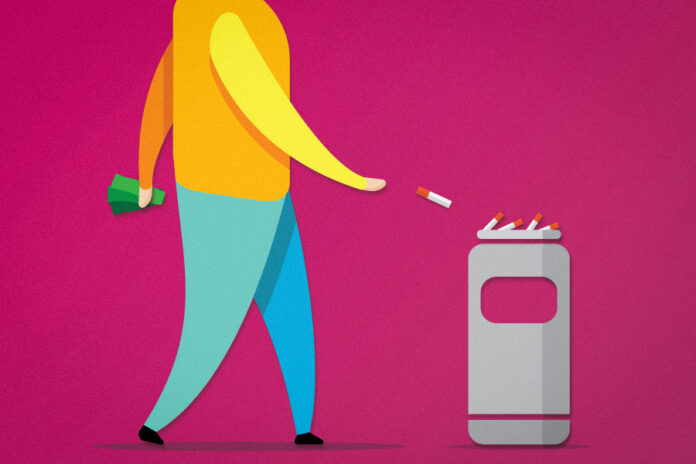Research reveals how increasing minimum wages can improve public health
When the topic of income is raised, the issue is conventionally associated with the field of economics. Current research, however, suggests that a correlation exists between income and public health, specifically between minimum wages and smoking addiction. According to a recent study entitled “Minimum Wages and Public Health,” led by Paul Leigh, a professor emeritus in the Department of Public Health Sciences at UC Davis, there is a link between increasing minimum wages and the reduction of smoking prevalence among low-wage and low-skilled workers.
Though Leigh has written several papers on the correlations between wages and public health, it was only two or three years ago that he began looking at minimum wages specifically. After contacting Juan Du, an associate professor of economics at Old Dominion University, the two began a systematic review of various medical literature pertaining to minimum wages through scientific websites, such as PubMed and Web-of-Science.
Leigh mentioned that a very time-consuming aspect of the research was determining which literature was reputable and relevant to the question they were exploring. Some studies simply had the words “minimum wage” in their abstracts but were not looking at the issue specifically. He stated that his team spent almost two years narrowing down the data. Once the set of studies were established, the researchers conducted a meta-analysis to further analyze the data.
According to Leigh, meta-analysis means analyzing numbers from different studies in order to obtain an average estimate that is then examined to determine if it is statistically significant.
“The biggest challenge [in compiling the data] is that health outcomes are diverse,” Du said. “There are about 20 outcomes that are related to health and health behaviors. Different studies also have different samples. How to compare them and synthesize information from them and organizing results is very difficult.”
In addition to the unexpected number of health measures, Leigh explained that the lack of consensus among the studies on the various measures of health was also surprising. While some studies would argue in favor of an apparent effect, other studies would claim there was none. There was a strong consensus, however, about one health group in particular: smokers.
The estimates in Leigh’s study revealed that a $1 increase in minimum wage was associated with a 1.4 percent reduction in smoking prevalence among affected groups. According to Elisa Tong, an associate professor in the Department of Internal Medicine, smoking is disproportionately represented in people with low socioeconomic status. Although a health provider does not have direct access to a patient’s income, their healthcare coverage can suggest their socioeconomic status.
As those of low socioeconomic status may work minimum wage jobs, this potentially leads to stress, which is a dominant reason for why people smoke. Tong further explained that though many people want to quit smoking, the nicotine in tobacco products is a highly addictive substance that takes multiple tries to quit entirely. In revealing the correlation between an increase in minimum wage and a decrease in smoking prevalence, Tong hopes that this will lead to support for increases in minimum wage and have a broader impact on behavior change.
“It’s very hard to reduce smoking prevalence, but population-level policies like tobacco taxes and smoke-free policies are thought to have the strongest impact,” Tong said. “Policies can support quitting and change social norms about the acceptability of smoking outside of a doctor’s office.”
Despite the lack of a general agreement between studies, there were no consistently harmful effects associated with increasing minimum wage. This led Du to come to the conclusion that the positive effects of raising these wages dominates the negative effects.
Leigh explained that middle income wages have been stagnant for the past 30 to 40 years, though those on the lower end have experienced a decrease. If the minimum wage is increased significantly, the wage structure can be improved so that, by increasing the wages of low income workers, economic pressure will be put on middle income wages that will allow them to drift upward. Therefore, by increasing minimum wages, a significant effect can be produced on improving income inequality.
While minimum wage and the wages of low income people tend to spark economic questions, Leigh believes that people should begin looking at minimum wage as a public health issue.
“The major thing I would like for people to think about is […] there’s this secondary effect we haven’t thought about. There’s a secondary effect here that you can improve people’s public health,” Leigh said. “Then it becomes an argument in favor of raising minimum wage, a different argument in favor of raising minimum wage.”
Written by: Michelle Wong – science@theaggie.org




